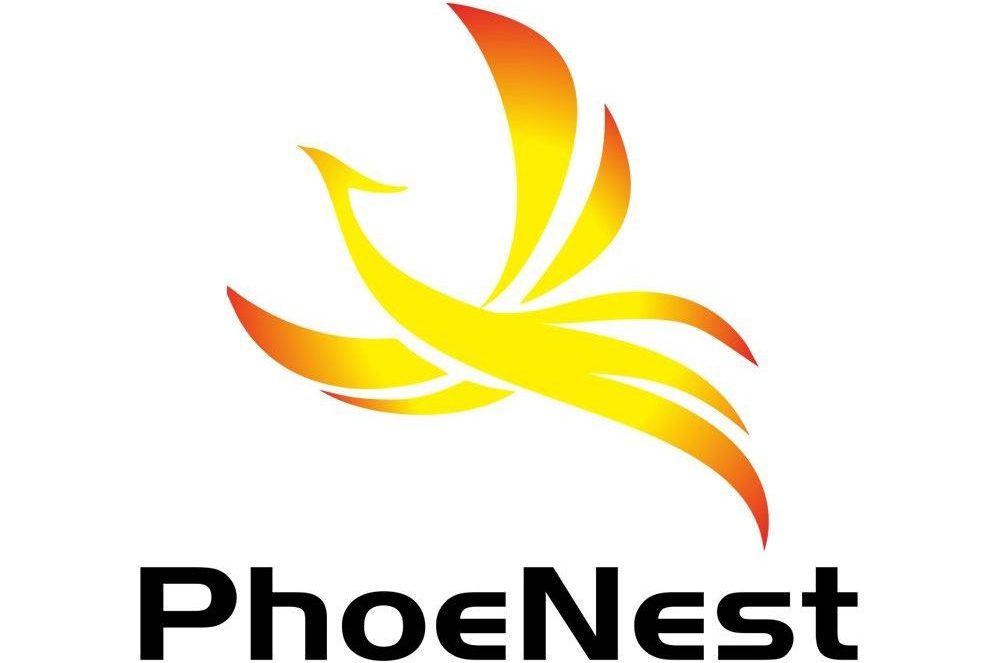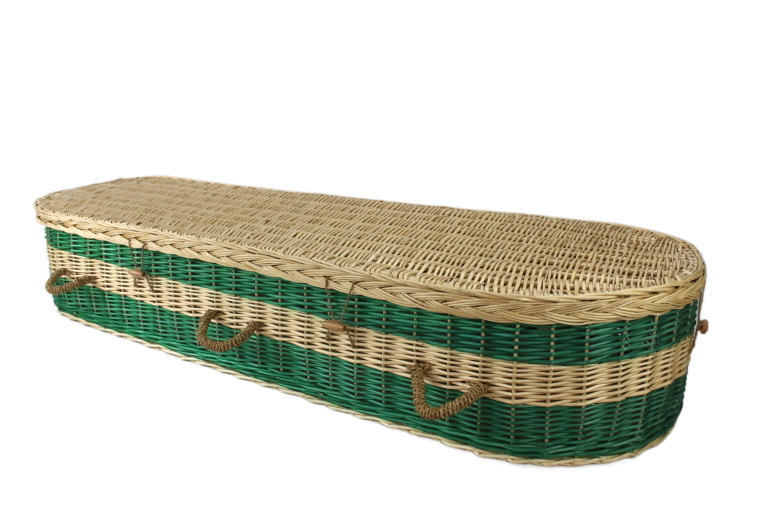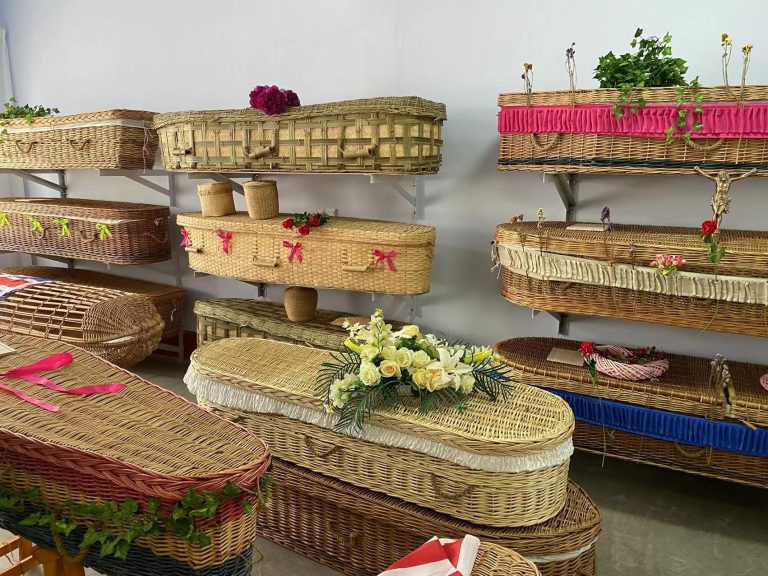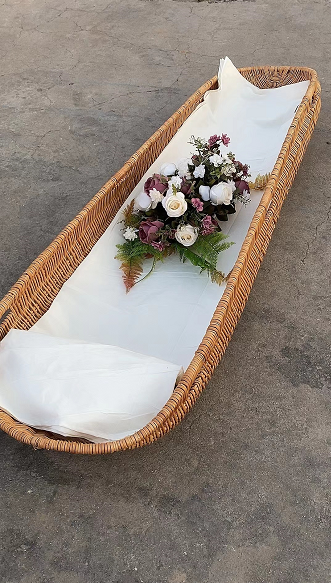Key Takeaways:
· Biodegradable coffins can be both affordable and premium, with basic woven models often costing less than traditional mid-range options.
· The global green burial movement is driving demand, making eco-friendly choices increasingly accessible across price points.
· Direct sourcing from manufacturing hubs like Linyi Linshu in China provides significant cost advantages for both funeral homes and consumers.
The perception that eco-friendly choices inevitably come with a higher price tag is being challenged in the funeral industry. When comparing biodegradable coffins to their traditional counterparts, the cost picture is more nuanced than many expect, varying significantly by material, region, and sourcing methods.
Cost Comparison: Breaking Down the Price Factors
The price of any coffin is determined by several key elements: materials, labor, manufacturing processes, and distribution markups.
Traditional coffins, particularly those made from solid hardwoods like oak or mahogany, or metal caskets with protective seals, involve expensive raw materials and energy-intensive manufacturing. This places them at the premium end of the market. In the United States, for example, the average cost of a traditional funeral with a metal casket often exceeds $5,000, with the casket itself being a major expense.
In contrast, biodegradable coffins utilize sustainable, often rapidly renewable materials. Simple woven willow or bamboo coffins involve skilled handcraft but less processed materials, which can significantly lower the production cost. In many markets, a well-made willow coffin can be a mid-range or even budget-friendly option. For instance, while a high-end traditional coffin in the UK might cost over £3,000, a well-crafted willow coffin is frequently available for a fraction of that price.
The Global Market and Regional Variations
The cost dynamics of biodegradable coffins shift from one region to another, influenced by local demand, regulations, and supply chains.
In Europe and North America, where the green burial movement is well-established, biodegradable coffins are a standardized product. Their pricing is competitive, especially when compared to mid-tier traditional coffins.
The most significant factor for global affordability, however, is the supply chain. A substantial portion of the world’s biodegradable woven coffins are produced in Linyi Linshu, China, a global hub for willow and rattan crafts. Sourcing directly from these specialized factories bypasses multiple layers of distributors, dramatically reducing the final cost. This makes biodegradable options particularly cost-competitive in international markets.
The True Cost: Beyond the Price Tag
While the upfront cost is a primary concern, many consumers are also considering the “true cost” of their choice. Biodegradable coffins, by their nature, avoid the environmental impact associated with traditional options. They forego the use of:
· Chemical finishes and varnishes that can leach into the soil.
· Non-biodegradable metal hardware.
· Energy-intensive manufacturing processes used for metals and hardwoods.
This alignment with environmental values is a powerful driver, making the choice for a biodegradable coffin an investment in sustainability, regardless of a slight price premium in some cases.
Conclusion: An Increasingly Accessible Choice
The question of whether biodegradable coffins are more expensive does not have a simple yes-or-no answer. While premium, artistically crafted eco-coffins exist, basic and dignified biodegradable models—especially those sourced efficiently from global manufacturing centers—are often no more expensive, and sometimes less costly, than traditional mid-range coffins.
As global demand for sustainable funeral options grows and supply chains become more efficient, the price gap is likely to narrow further. For the eco-conscious consumer, the biodegradable coffin has emerged not only as an environmentally sound choice but increasingly as an economically sensible one too.
We are a factory supporting eco friendly green funeral(natural willow coffins\bamboo caskets and so on) .. for detail please contact us www.phoenixnestcoffins.com;
Phoenix Nest ( Shandong ) Crafts Co.,Ltd.
Whatsapp: +86-18265103836 (Whatsapp & Wechat & Tel)
Email: jason@phoenxinestcoffin.cn
#willow coffin#greencoffins#bamboocaskets#urns#naturalcoffins#chinafactory#scattertube#naturalburial#FuneralSupplies#cross#flowerbands#shrouds #carrierfuneral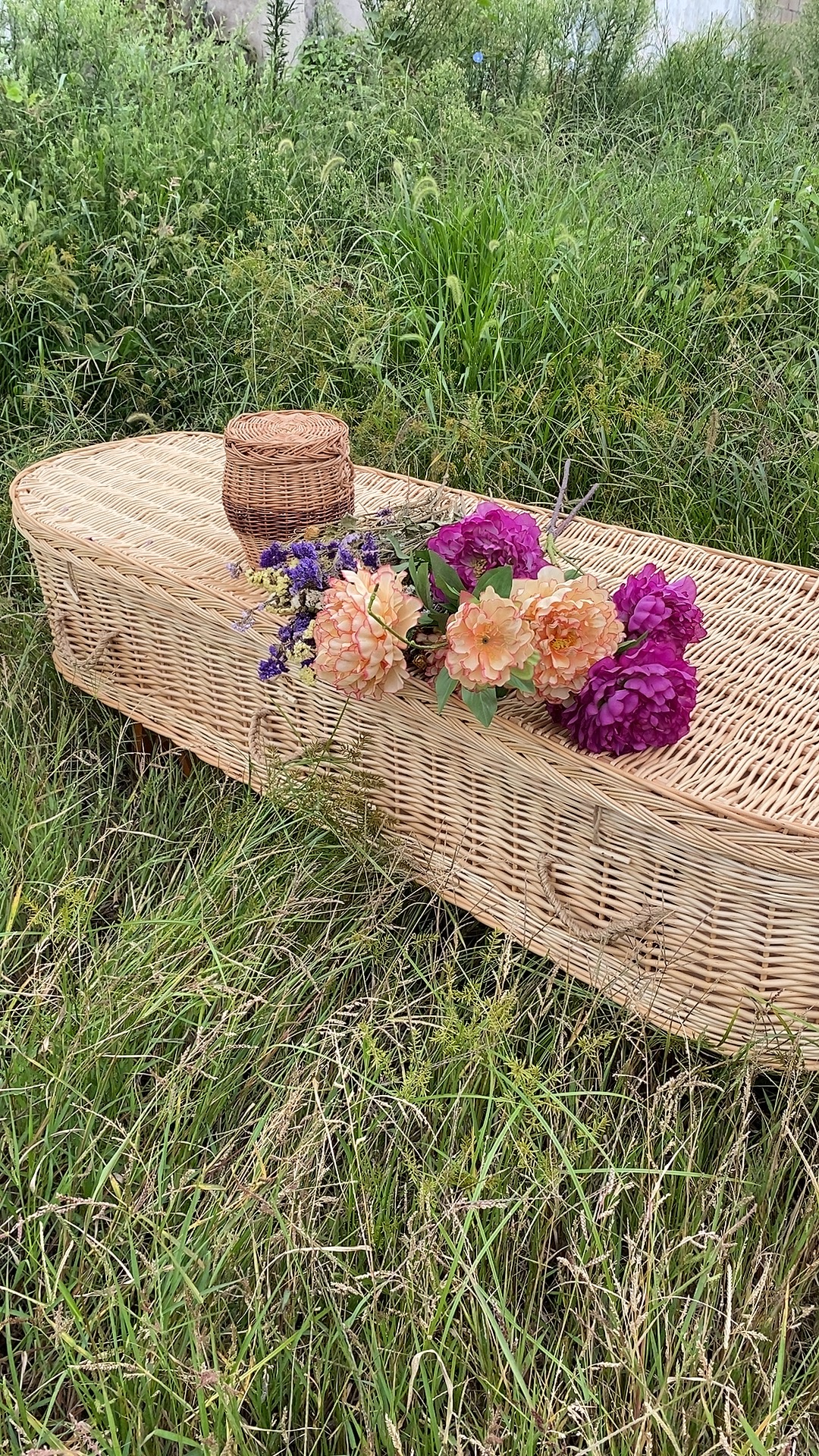 Bei der Wahl eines Weidensargs für ihre Angehörigen stellen sich viele Familien die Frage: „Ist ein Weidensarg für eine Feuerbestattung geeignet?“ #phoenixnestcoffins #ökologischesdesign #umweltfreundlich #naturbestattung #naturfriedhof #naturbestattungen @everyone@followers
Bei der Wahl eines Weidensargs für ihre Angehörigen stellen sich viele Familien die Frage: „Ist ein Weidensarg für eine Feuerbestattung geeignet?“ #phoenixnestcoffins #ökologischesdesign #umweltfreundlich #naturbestattung #naturfriedhof #naturbestattungen @everyone@followers
